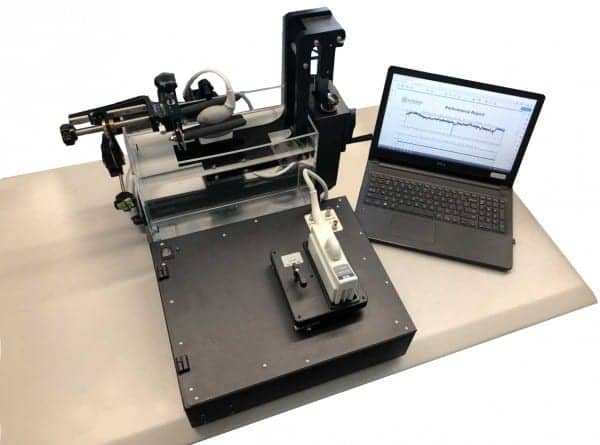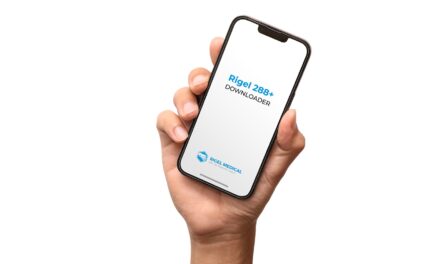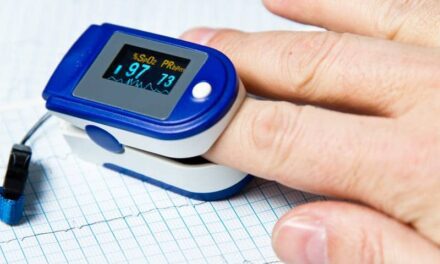Longmont, Colo.-based Acertara Acoustic Laboratories has designed the ATLAS system as a scalable, high-speed, portable, high-precision ultrasound probe and array testing device— intended for contemporary probe and multi-element array technologies, including 2D matrix arrays.
It was once necessary to have a room filled with numerous daisy-chained, rack-mounted technical equipment operated by a PhD acoustic physicist to test and analyze the essential acoustic and electrical performance parameters of an ultrasound probe; now it only requires a single, small tabletop device. In fact, ATLAS weighs just 12.5 pounds and stands 43cm x 36cm x 11cm.
Moreover, when connected to a laptop computer, ATLAS runs a complete probe test and analysis in less than 30 seconds. Further, the ATLAS test system hardware and software were designed with flexibility, expandability, and customization in mind. Both the functional hardware and software are composed of operational modules (e.g., daughter-board hardware) containing various acoustic testing and analysis functions.
This modular design approach allows easy customization of the final software package by including or excluding modules that match specific customer requirements.
Examples of array parameters that are tested include: element sensitivity, time-of-flight, complex impedance, pulse length, ring-down, fractional bandwidth, crosstalk, insertion loss, and various other acoustic and electrical parameters. User-defined judgment/acceptance criteria for any array are defined in an acceptance script that may be displayed, stored, and/or printed by the operator. And using a 408-pin ITT Canon array electrical interface, ATLAS can adapt to nearly any ultrasound probe type or model.
Key Product Features
ATLAS has both unipolar and bipolar programmable pulsers that are highly customizable. The capability to connect an external pulser is also provided. For matching historic test results on existing test systems, substantially equivalent pulser excitation is essential and is incorporated in this design. Additionally, the capability to measure the complex impedance of an array element and interconnect wiring is provided.
Also, high-resolution software adjustment of RF Gain and transmit voltage supports precise matching of test results unit-to-unit. Moreover, the results match unit-to-unit within the following tolerance requirements:
- Array average loop gain results must match within ± 0.6dB.
- Array average pulse width results with a -20dB threshold must match within ±3%.
- Center frequency results with a -6dB threshold must match within ±0.2MHz.
- Bandwidth results with a -6dB threshold must match within ±3%.
Software information
ATLAS software runs on Windows 10 Professional, Windows 7 Professional, or Windows XP Professional. Further, ATLAS software is developed and maintained using the LabVIEW programming language, but is distributed as a native Windows executable application. ATLAS software can also be user-customizable to accommodate proprietary test parameters. Test results and reporting is provided via a PDF format.
Moreover, the test software provides the ability to save the results of any test. Specifically, the results will be saved in a text file, and a test database index will allow for convenient searches of previous test data and report generation from archived test data.
For more information regarding the ATLAS system, visit www.acertaralabs.com.





